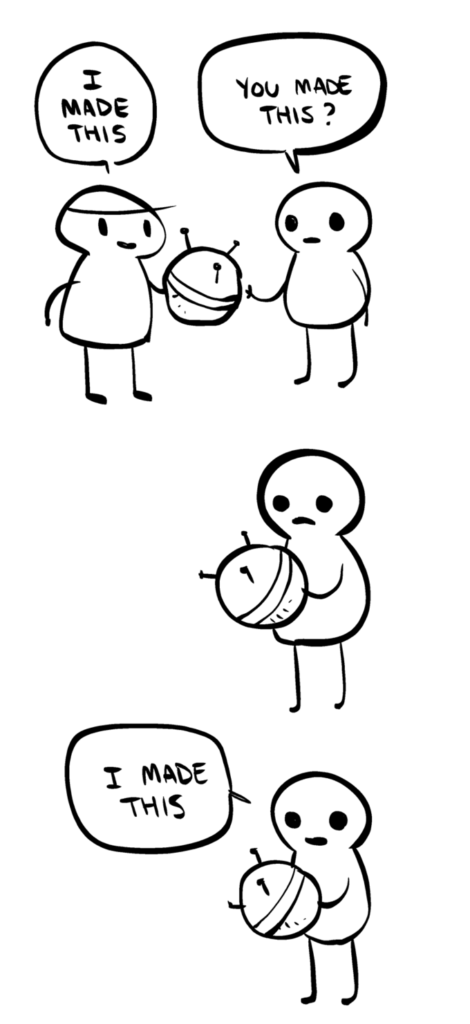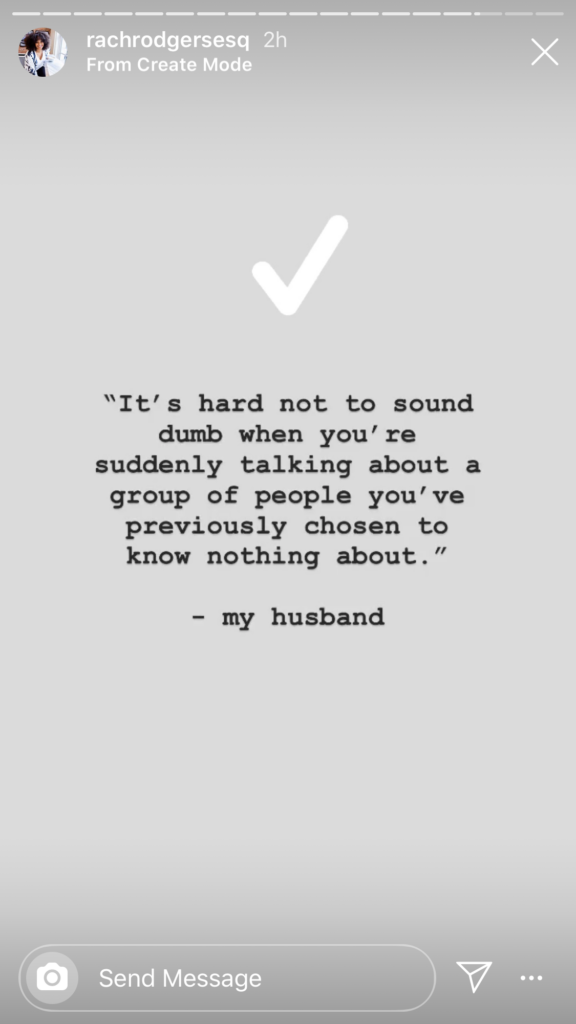This post is about plagiarism.
First, a story. Last week, I unwatched some internet drama unfold. I won’t name names, but here’s a brief recap: a white woman wrote some journaling prompts for confronting one’s relationship to racism. A black woman accused her of plagiarizing some of these prompts from her viral blog post from a few years back. The black woman asked for an apology in a specific form. The white woman complied.
Here’s what happened to me: when I looked at the black woman’s comparisons of the two posts, I didn’t see the plagiarism. I saw two sets of writings on the same topic, yes, but where the wording overlapped, I saw fairly general statements. I saw coincidence in syntax, in other words, not plagiarism. I was looking at it like a copyright lawyer.
But I kept paying attention, and finally I did see it. I finally heard and understood what the black woman was saying: the white woman took it upon herself to write journaling prompts about antiracism, and she did not credit the many black people who have articulated these concepts before her, even the ones who taught her these concepts.
It is irrelevant whether she wrote the sentences based on the black woman’s particular post or not. The white woman’s post itself is a problem: it arises from white people’s tendency to charge in and reinvent a wheel that black people have already been making.

That same white tendency inspired me to write about racism today. I started planning this post mentally a while ago, and only after I watched the above internet drama play out did it occur to me that all I have to say is reformulations of things black people have already said. I’ve taken in learnings from lots of Black people that I can’t credit for their intellectual and emotional labor, because I did not write their names down at the time. It didn’t occur to me to do so, because my whiteness gives me this huge blind spot when it comes to black people’s intellectual and emotional labor. Instead I internalized what they taught me, and now I’m writing about it. I’ve tried to correct this failure by including links to other people’s words on these topics.
I have trepidation about choosing to write this post. Partly because of white fragility: I’m more afraid of “getting in trouble” than I am about doing the right thing. (That’s precisely what this post is about). Partly because I’m actually not entirely sure that it is the right thing for me to be talking about.
But I need to do better. Like me, a lot of my audience is white. I am moving forward with the belief that speaking out, even if I know I will do so imperfectly, is better than staying silent and keeping what feels like a safer image.
This post is about image.
This is by no means an original observation, but it bears repeating:
We must be more concerned about not being racist than we are about not being seen as racist.
I see a lot of white people getting this backward (and I’ve been guilty of this many times, myself): we blissfully tune out the racism we see around us and on the news, but we flip out when it feels like we are being called out for our complicity with racism.

And here’s where I think that comes from:
Most of us deeply believe one thing: I am a good person. Or, at least, I am not a bad person. Depending on our religious and moral background, we define “bad person” pretty scantily. I’ve often heard it basically defined as “not being a murderer.” By that metric, most of us are not bad people. Easy peasy.
We go about our lives believing that very deeply: we are not bad people. We are good people. It’s a first principle underlying all of our experiences.
Here’s another thing that most people can agree on: racism is bad.
Put those two things together: Racism is bad. I am not a bad person. Logically, then, I am not a racist.
If you hold these beliefs strictly, they will lead you to define everything you do, think, say, feel, and believe as not racist. Because, remember, if you were a racist, you would be a bad person, and you know you’re not that.
This logic is extremely unhelpful. Anyone with access to the internet has seen how it plays out: white people bulldozing anyone who dares mention racism, especially anyone who dares accuse a white person of racist behavior, because they are so petrified of their image being tarnished. They are terrified, furious, if there is a risk of their good-person status slipping. White people defining racism in such a way that, conveniently, they can’t be racist. “I never owned slaves. Hey presto, I’m not a racist! (And I didn’t even break a sweat.)”
If we are to make any headway against this logical brick wall, I think two things need to happen:
First, we need to ease up on this defensiveness about being a “good person.” We are not dogs. We do not get treats for being good boys. And we aren’t good boys just because we don’t poop in the house anymore. No, we are humans with complexity and consciences. We are all flawed. We are all capable of change and improvement. We should act like it, and let go of our white-knuckle grip on “being a good person.”
After all, if you hurt someone, I can guarantee you they don’t care that you and your mom think you’re a good person. They want you to change your behavior so you don’t hurt them again.
Second, we need to understand that racism is more a verb than a noun. Racism is about what one does, not who one is. If you find it triggering to think of yourself as “a racist,” fine, let go of that word. Look instead at what you do, what you say, what you don’t do, what you don’t say. Look at your verbs, not your nouns. Because calling yourself “not a racist” is basically like a bad Wikipedia page: [citation needed.] You don’t get off the hook that easy.
(I anticipate this objection: “I don’t do racist things! I don’t lynch people, or use the n-word, or…[end of list]” If you think racism is that limited, I have a bridge to sell you.)
This post is about shame.
I’m not here to shame anyone. I still hold that shame doesn’t work to change people’s minds. And don’t we want people’s minds to change? We want the world to change, and so much of racism comes directly from the minds of white people: in our willful blindness to inequity, our knee-jerk race-based emotional reactions; our unchallenged assumptions; our subconscious judgments; our defensiveness and guilt and fragility and clannishness. Look at the way we process information differently if it comes from a black person than a white person, whether it be a personal anecdote or legal testimony or medical symptoms.
How it takes so damn much evidence for us to look at what black people have been saying and go, “oh, wow, you might have a point there. Why didn’t you say anything sooner?”
We need our minds to change if we want to see change in the world.
So all of us need to be willing to be vulnerable. To be wrong. To remember that it’s our actions that count, not our image.

We have to be able to see racism. Not in just the cartoonish way, but in the subtle, insidious ways that even “good people” participate in and enable daily.
My hope is that this post helps in that project. But if I miss the mark, and I know I will, hold me accountable. I need to be more concerned about doing differently than about appearing to be good.